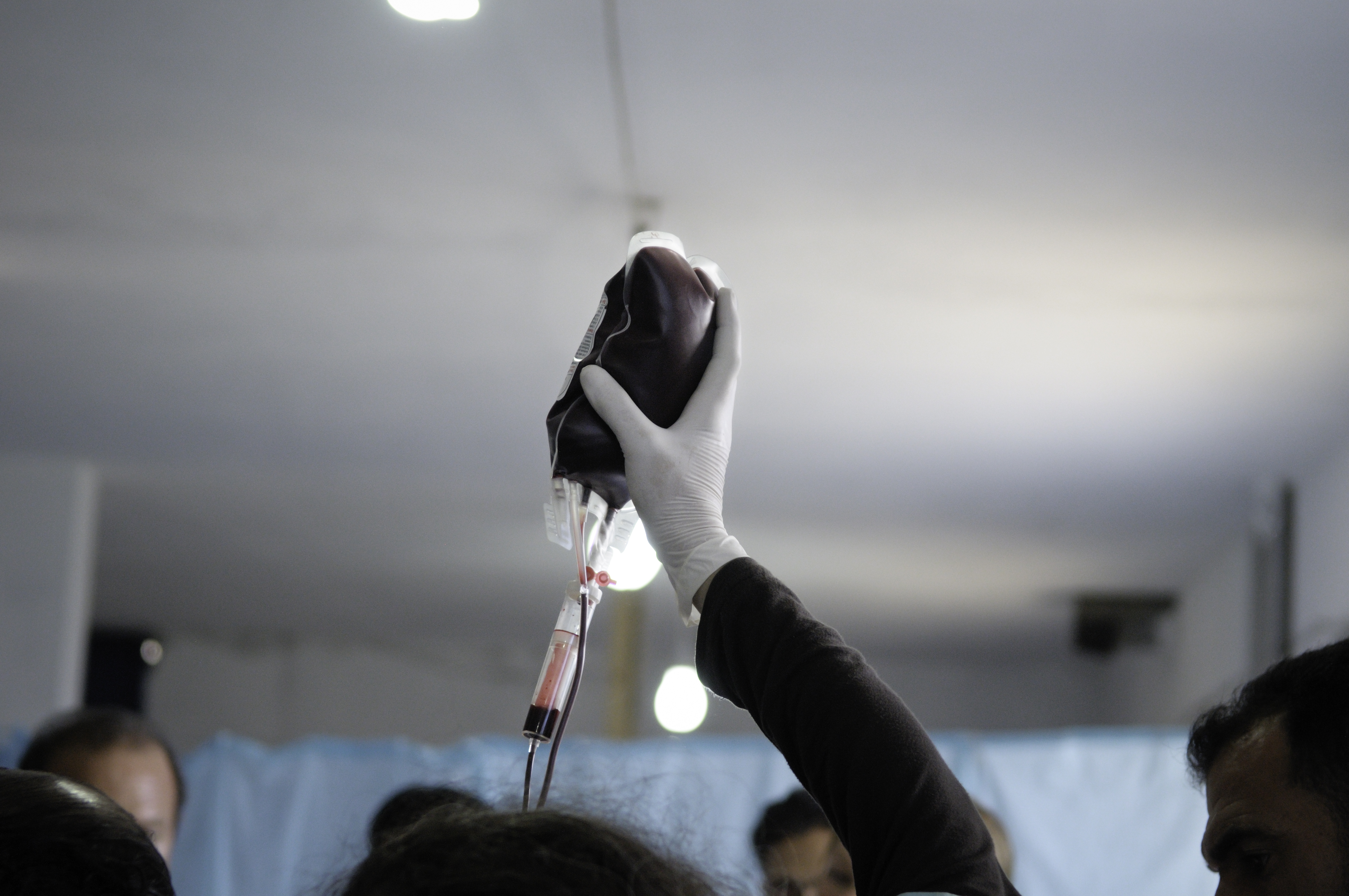Syria: Eleven children among patients treated following airstrike in Idlib

On Saturday 11 December 2021, 15 casualties were rushed to a hospital co-managed by Médecins Sans Frontières (MSF) following an airstrike in Idlib governorate, northwest Syria.
Eleven children under 14 and two women were among the wounded; two people unfortunately died before reaching the hospital. A four-year-old patient was in critical condition.
. “There were shrapnel wounds all over her small bod. Our medical team managed to stabilize her, but it was still very shocking to see her injuries. The others had light to moderate injuries.”
- Dr Jihad Ismail*, MSF’s Medical Activity Manager
“This is not the first time we have dealt with a mass casualty influx in one of our co-managed hospitals in northwest Syria”, he explains. “But it’s unusual to see so many children. In this instance some were as young as two. It’s distressing to see children who have experienced nothing but conflict in their short lives, become not just witnesses but also direct victims of such violence.”
The need to respond to medical emergencies such as mass casualty events or outbreaks remains extremely high in northwest Syria given the volatility of the situation there. Despite the signature of a ceasefire in March 2020, airstrikes and shelling continue on a regular basis. MSF teams remain ready to respond, and we continue to monitor what is happening and, when needed, can increase our capacity to react during and after emergencies to attend to the needs of the population.
The population and the health system have already been severely impacted by over ten years of conflict, and such mass-casualty influx just illustrates how the need for life-saving care remains very high.
*name has been changed to protect identity
****
Over the past decade of conflict, Médecins sans Frontières/Doctors Without Borders (MSF) has consistently readapted to the changing context in and around Syria to continue responding to growing humanitarian and medical needs in the country. This ranges from trauma and wound care, to maternal and child health services, as well as vaccination campaigns aimed at preventing the spread of deadly diseases.
MSF is currently supporting 8 hospitals in northwest Syria including 1 burn unit, in addition to 12 Primary Health Care centers (PHCs) and 5 ambulances for referrals. MSF also supports 14 mobile clinics serving more than 80 Internally Displaced People (IDP) camps. MSF is running Water, Sanitation and Hygiene (WASH) activities as well, in close to 90 IDP camps across the northwest region.
Most recently, to respond to the COVID-19 pandemic, MSF has opened COVID-19 isolation and treatment centers as well as a treatment center for respiratory illnesses in northwest Syria. In displacement camps, MSF runs mobile clinics to conduct COVID-19 tests and distribute prevention kits for displaced people. To counter vaccine hesitancy, MSF is also running health promotion initiatives to spread awareness directly within communities as well as through digital channels.
In northeast Syria, MSF provides vaccination support in across 12 locations. It runs a primary healthcare clinic, a NCDs programme, mobile wound care, and a reverse osmosis plant to provide safe drinking water in Al-Hol. MSF also runs two NCDs clinics and provides primary health care services, including tuberculosis care inside a Detention Centre. Furthermore, MSF supports a hospital, as well as an outpatient department (OPD) which includes an ER, and it has launched a nutrition programme. Throughout the COVID-19 pandemic, MSF has supported hospitals and health centers in two major cities during the peak.
MSF’s activities in Syria do not include government-controlled areas since MSF’s requests for permission to date have not resulted in any access. To ensure independence from political pressures, MSF receives no government funding for its work in Syria.





Leave a Comment